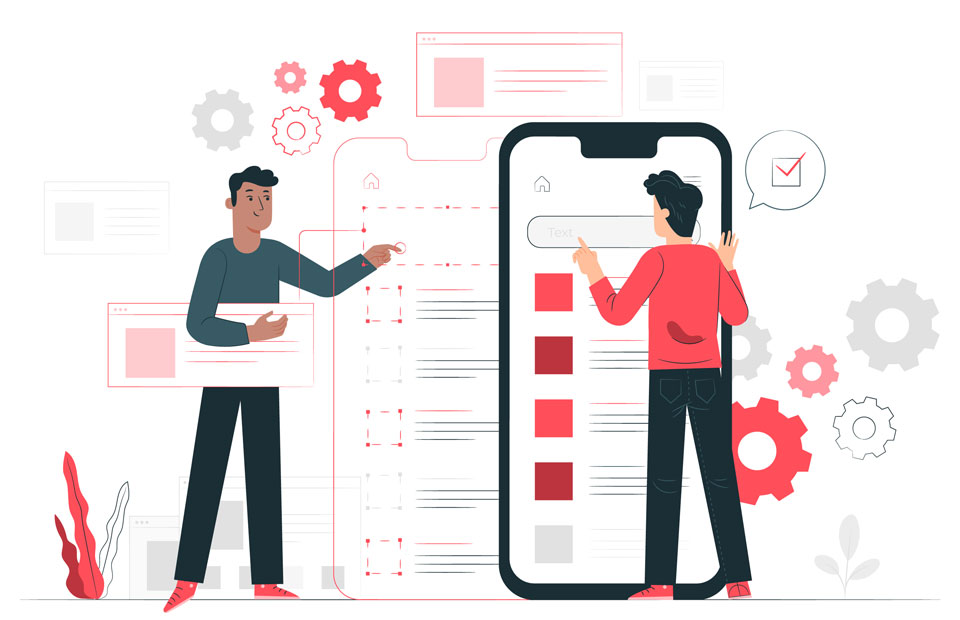Celebrating 14+ years of delivering superb IT services
to businesses worldwide!
The journey to building a successful Android app begins with a brilliant idea. Start by identifying a problem or need that your app can address. Consider your own interests and passions; often, the best ideas stem from personal experiences. Conduct brainstorming sessions, keep a notepad handy, and gather inspiration from everyday life.
Once you have your idea, it's essential to validate it through market research. Analyze the competition and identify gaps your app can fill. Tools like Google Trends, AppAnnie, and surveys can help you gather valuable insights.
Clearly define the purpose of your app and list its features. What problem will it solve, and how will it make users' lives better? This step is crucial for creating a focused and user-centric app.
Wireframing and prototyping are vital for visualizing your app's layout and user interface. Tools like Sketch, Figma, or even paper sketches can help you create a rough outline. This step helps you identify any usability issues early on.

Java and Kotlin are the most widely used programming languages for creating Android apps. Modern languages like Kotlin are becoming increasingly popular because of their clarity and low error rate.
The standard Interface for creating Android apps is called Android Studio. It offers a wide range of tools, emulators, and templates to streamline your development process.
Using a version control system, such as Git, is essential for tracking changes, collaborating with others, and ensuring code stability.
Start by creating a new Android Studio project, selecting the appropriate settings, and configuring your development environment.
Design an intuitive and visually appealing user interface. Leverage Android's XML-based layout system and design guidelines for a consistent user experience.
Decide whether you need a server for your app and choose the backend technology stack accordingly. Firebase, AWS, and Google Cloud are popular choices.
Write clean, efficient, and modular code. Debug and test your app regularly to identify and resolve issues promptly.
Create unit tests to ensure that individual components of your app work as expected.
Gather a group of beta testers to evaluate your app's usability, functionality, and performance.
Test your app on various Android devices with different screen sizes and operating system versions to ensure it works seamlessly for all users.
Before submitting your app to the Google Play Store, make sure it meets the store's guidelines, has an appealing icon, and complies with legal requirements.
Create a developer account on the Google Play Developer Console, pay the one-time registration fee, and set up your app's listing.
Choose the release track (alpha, beta, or production) and set a launch date. Develop a marketing strategy to create buzz around your app's release.
Pay attention to user feedback, fix bugs, and regularly update your app to introduce new features and improvements.
Explore various monetization strategies, such as in-app ads, freemium models, or one-time purchases, to generate revenue.
Use analytics tools like Google Analytics to track user engagement and make data-driven decisions for app optimization.
As your user base grows, consider scalability issues and expand your server infrastructure if necessary.
Stay vigilant about app security and user data privacy. Implement security updates and adhere to data protection regulations.
The tech industry evolves rapidly. Stay updated with the latest Android developments, tools, and programming languages to maintain a competitive edge.
Embarking on the journey from an app idea to the App Store is a challenging but highly rewarding endeavor. Keep in mind that success in the app market often involves continuous learning, user feedback, and adaptation. So, go ahead, start your Android app development journey, and turn your vision into reality. Speaking of development and looking for top Android App Development in Kochi, look no further than Globosoft. With a proven track record of delivering high-quality apps and a team of skilled developers, Globosoft is a leading name in the industry.

Web design should be three things: human-centered, compelling and future-proof.
Enquire NowGrowth of your business has a lot to deal with tactical and effective SEO.
Enquire NowGive us a hint on what your business stand for and we will develop for you astate-of-the-art..
Enquire NowIn the digital era, Enterprise cloud governance essentiallydeals with applying specific policies ..
Enquire Now